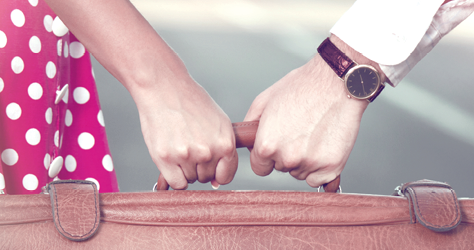How to travel when pregnant - our top tips for mums-to-be
Holidays are a great chance to unwind and relax, but getting to your destination can bring up some challenges.
At a glance
- Holidays are a great chance to unwind and relax before baby arrives
- Don't get too hot and make sure you protect your skin as it is more sensitive during pregnancy
- Do your research first especially if you will need vaccines

Here are our top tips for staying safe and comfortable.
Don’t get too hot
It isn’t good for you or your baby, so when you’re driving in sunny weather, keep the windows open or the air con on and take regular breaks.
Protect your skin
Your skin is more sensitive during pregnancy, so be sure to wear a hat and use a good sun screen, particularly if you’re driving with the roof down.
Wear anti-DVT support socks on long flights
Pregnant women are more at risk of deep-vein thrombosis (DVT), a condition where blood clots develop. To avoid it, move your legs regularly and walk around when you can.
Drink plenty of water
This will help prevent DVT, as well as dehydration. And when it comes to eating, try some prenatal energy boosters. Our food pages offer some great advice for foods to eat while pregant.
Wear comfortable clothes
Leggings and a t-shirt or loose blouse are perfect for travelling comfortably. And avoid tight shoes, in case your feet swell.
Get up and move around
Again, this is the best way to prevent DVT. You’ll also find that taking regular rest stops and getting a chance to stretch your legs stops you feeling quite so uncomfortable.
Research the right vaccinations
Make sure you have your travel vaccinations. Nearly one in four UK tourists skip theirs, despite visiting places that have dangerous diseases. Vaccines are unlikely to cause problems for your baby, but you’ll need to consult your GP.
Keep moving
If you’re stuck in a plane or car seat for long periods, circle your ankles and bend your legs every half hour. This will improve your circulation.
Avoid malaria-contaminated areas
Stay away from countries with a malaria risk, as the chance of developing complications with the disease increases whilst you’re pregnant. If you can’t avoid it, it’s extremely important that you take the right medicine. To find out more, see your GP.